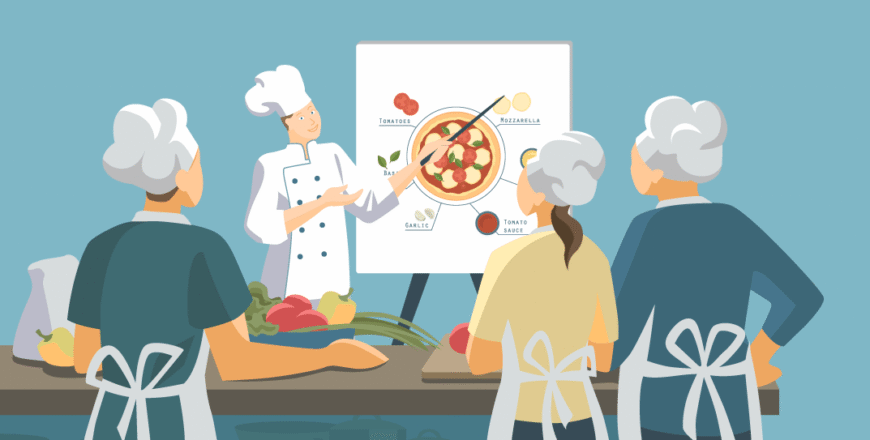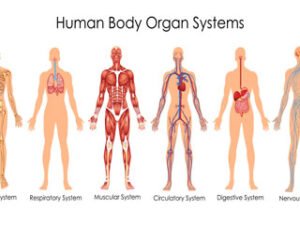Level 3 Supervising Food Safety in Catering
- Description
- Curriculum
- Notice
Level 3 Food Safety Course Overview
Food hygiene and safety is of utmost importance in the catering industry. In recent years, there have been numerous cases of foodborne illnesses that have resulted in severe health consequences for people. The
Level 3 Food Safety in Catering course
aims to provide participants with an in-depth understanding of food safety and hygiene.
A scientific review estimating that around 2.4 million cases of foodborne illness occur every year in the UK has been published. With the food catering industry growing each year, it is essential to ensure that all staff members involved in food preparation and service have an appropriate level of training and understanding of food safety. This Level 3 Food Safety in Catering course provides a valuable opportunity for individuals to expand their knowledge and develop their skills in this area.
Accredited by CPD
Institute of Hospitality endorsed
Meets UK & EU legal requirements
Instant e-certificate and hard copy dispatch by next working day
Fully online, interactive course
Developed by qualified food safety professionals
Self paced learning and laptop, tablet, smartphone friendly
24/7 Learning Assistance
Discounts on bulk purchases
Learning Outcomes
By the end of the course, learners will be able to show that they can:
Demonstrate an in-depth knowledge of food safety.
Prove awareness of all UK food and safety regulations.
Show the ability to introduce and maintain an effective Food Safety Management System (FSMS).
Exhibit a fundamental understanding of microbiology.
Identify and control contamination hazards.
Understand the bacterial (and non-bacterial) sources of food poisoning.
Prevent food spoilage and pest infestation.
Show the ability to train and supervise staff in all of the above.
Assessment
At the end of the course, there will be an online assessment, which you will need to pass to complete the course. Answers are marked instantly and automatically, allowing you to know straight away whether you have passed. If you haven’t, there’s no limit on the number of times you can take the final exam. All this is included in the one-time fee you paid for the course itself.
Course Contents
Module 01: Food Safety – An Introduction
This introductory module will draw your attention to the world of food safety. You’ll learn about the food-borne illnesses and its causes, the vulnerable risk groups, and the key terms which will help you to understand food safety and its importance.
Module 02: Supervision of Food Safety
This module will tell you everything that you need to know about the roles and responsibilities of a supervisor. Along with the in-depth knowledge of supervisory skills and styles, you’ll also learn about food safety cultures, standards, food safety policies, and quality assurance & control.
Module 03: Food Safety Legislation
As the name suggests, this particular module is dedicated to giving you an overview of the key legislation, concerning authorities to enforce the law, code of practices, fines and prosecution, and due diligence.
Module 04: Food Safety Management System
The food safety management system, HACCP and its fundamental principles, detail discussion of the implementation of HACCP, and HACCP based food safety management system – these are the keynotes of this module 4.
Module 05: Food Safety Management Tools
The highlighted part of module 5 is a vivid discussion on the various food safety management tools. Along with this, learners will also get to know about the management responsibilities and the importance of documenting the food safety system.
Module 06: Microbiology
In module 6, we’ll give you a tour of Microbiology. In this voyage, you will come across the detail of bacteria and factors responsible for its multiplication, moulds, yeasts, viruses, protozoa, and cyclospora.
Module 07: Contamination Hazards
From knowing the sources of contamination to understand the processes of detecting contamination – all will be discussed in module 7. You’ll also learn about various types of contamination hazards, vehicles of contamination, and cross-contamination.
Module 08: Controlling Contamination
This module will shed light on the control of different contamination hazards and the role of the supervisor in the prevention of contamination. Food storage, food preparation and cooking, and food service and delivery are some of the other key topics of this eighth module.
Module 09: Food Poisoning (Bacterial) and Food-Borne Illness
After a brief discussion on food poisoning, this module will draw your attention to the most common causes of food poisoning, food-borne illness, and food-borne viruses. Each of the topics will be discussed in detail.
Module 10: Food Poisoning (Non-Bacterial)
In this module; you will learn about chemical food poisoning, metallic food poisoning, scombrotoxic fish poisoning, paralytic shellfish poisoning and diarrhetic shellfish poisoning, and the generic control measures for most food poisoning organisms.
Module 11: Personal Hygiene
This module will tell you about the high standards of personal hygiene, the relevant law and the role of the supervisor in personal hygiene. You’ll also learn about the hazards that come from food handlers.
Module 12: Food and Temperature Control
This module will cover the wide area of food and temperature control. Some of the key topics from this module are safe temperatures, fridge & freezer temperature, cooking temperatures, and time without temperature control.
Module 13: Checking, Verifying and Recording Temperature
Module 13 will introduce you with the different equipment and process of measuring food temperature. You’ll also learn about when food temperature should be measured and the recording of temperature checks.
Module 14: Food Spoilage and Preservation
This module explains the common signs of food spoilage and prevention methods along with the different approaches to food preservation. Delivery and unloading of raw materials, wrapping and packaging, and stock rotation will also be discussed in this module.
Module 15: Food Premises and Equipment: The Design and Construction
The design, construction, and maintenance of food premises and equipment are essential for maintaining food safety. This module will tell how you can go with these factors to maintain the high standard of food safety.
Module 16: Waste Disposal, Cleaning and Disinfection
Waste storage and the removal of waste, cleaning equipment, disinfection, and the procedures and methods of cleaning will be highlighted in this module. Learners will also familiarise with the in-houses and contract cleaning, and the role of the supervisor in cleaning.
Module 17: Pest Management
The module will look at different types of pests, contamination caused by pests, and the standard control measures. A due-diligence defence and the role of the supervisor in pest control will also be discussed here.
Module 18: Food Safety Training for the Staff
This module will draw the curtain on the course by explaining the importance of training for maintaining the high standard of food safety. You’ll also learn about the training methods and the role of management in it.
Module 19: Reopening and Adapting Your Food Business During COVID-19
In the final module you will familiarize with all the new practices that have recently emerged to adapt to the new normal. You will learn in detail about the standard hygiene and safety practices needed to be followed to minimize the risk of contamination of COVID-19.










